I found French baker Thomas Treffi-Chambelland via Youtube. Besides being a baker, he’s a miller, and he has a school in Provence for bread baking. My admiration grew from reading his book,Traité de boulangerie au levain, a classic for anyone interested in baking bread. Though both his book and Youtube channel are only offered in French, soon they’ll be delivered in English and Spanish. Wanting to introduce him to an English-speaking audience, I’m delighted he agreed to be interviewed here at Stir the Pots.
What made you leave science for bread?
Passion and unconsciousness! If I had in mind the sum of the difficulties I was going to encounter along the way, I might not have made this conversion. And I’m glad I didn’t suspect them, because in the end it’s been a wonderful, creative and very free professional and human journey. I would never have imagined managing bakeries in Aix en Provence, Lyon, Paris, a school, a mill and franchises!
How does CAP work and is the course applicable for foreign students?
CAP is a very basic level in french bakery field. Most of the students are disillusioned young people on the margins of the mainstream school system. Unfortunately, vocational courses are still devalued in France. The CAP is therefore a diploma for workers in conventional bakeries. Sourdough is not covered, nor is organic. The training aims to produce handlers capable of working behind ovens, dividers and shapers. The level of theoretical education is close to nothing.
What is EIDB’s goal for bread?
First of all, the EIDB is a small structure. I don’t have a goal for bread in general. That would be pretentious. I basically like freedom. I am a libertarian and I like to apply this also professionally. The EIDB is therefore an unusual structure in France.
By its small size (we welcome a maximum of 11 trainees per session), by its staffing level (there are 7 of us working for 11 trainees. 3 secretaries and 4 trainers) and by its teaching program. Indeed, I have always baked organically and I wanted to create a school capable of supporting people who are changing to the organic and sourdough sector. We are the only school in Europe to deliver an official professional diploma, recognised by the state. I submitted this title to the French government in 2012 so that the profession of organic and sourdough baker would be recognised. It is crazy to think that French bakery schools teach almost nothing about sourdough and the organic sector!
Since the school’s inception, we have supported over 200 openings. None of the companies opened have closed for economic reasons. We currently accompany 44 trainees per year and 80% of them open their own bakery.
This success is also linked to a fairly modern approach to baking. We are a trade school, but not just that! The trainees are supported in the engineering part of their project (business, finance, equipment sizing, etc.).Our public is largely a graduate one. They are adults (mainly aged 30-50) looking for meaning in their work. In my opinion, it is necessary to have a theoretical approach to the food industry.It makes us more open-minded bakers.
How has the pandemic effected bread making for professionals and home bakers?
For professionals, it depends on the geographical area.
With the urban exodus during the confinements, the bakers in the provinces worked well, the urban shops suffered, especially in the Paris region.
For amateurs, the confinements were periods of extraordinary blossoming! because most of people who are at home take time to cook and bake.
For a part of them it was also a trigger in the choice to change profession!
What do you look for in a well baked bread?
I don’t always look for the same thing. It all depends on the bread. But to be broad, open crumb, soft fluffy and generous, thick and super crispy crusts. I like very dark crusts, bordering on burnt. We have the right to disagree, okay?
Your favorite grain?
For real? Rice! I eat rice every day. It’s a wonderful grain. But I don’t grow it, the climate in Provence doesn’t allow it. Of the cereals I grow on my farm, my favourite is einkorn. It is a hardy plant, the straws are fine and the ears delicate. The aromas are incomparable.
Some people eat gluten free because of celiac disease, do you think people also just are following a trend?
The problem with this type of question is the term “people”. There is no such thing as “people”, there are many different individuals! Of course there are coeliacs, of course there are followers who eat gluten free like Djoko or Serena Williams. But when you know that 5 to 10% of the population in developed countries now eat gluten-free, in a total or partial eviction diet, it is difficult to talk about a simple fashion. Fads come and go, but this movement seems to have taken root.
In my opinion, it is important that consumers find a lasting personal interest in it.
Otherwise, we cannot understand why people make life difficult for themselves and accept to pay more without any benefit in return. It is important to understand that a lot of customers mix their diet to eat less gluten. We have seen this movement on alcohol for years. Consume less but consume better. Customers are therefore looking for better quality wheat breads in addition to gluten-free products. The popularity of wheat and rye sourdough breads is part of the same movement as the rise in popularity of rice and buckwheat breads. Let’s stop being divisive, let’s stay open.
For your information, I created in 2014 the Chambelland bakery which offers 100% organic and gluten-free products in Paris. I exploit my love for rice to produce fresh, healthy bread and pastries without any improvers.
At the same time, I set up my own mill (“Moulin Chambelland”) where I produce all our rice and buckwheat flours with my partners. The rice comes from Italy where we work directly with producers. This work has been an important opening in my life as a baker. It’s a completely virgin sector, perfect for free spirits!
How much of bread baking is craft or science?
No doubt, bread baking is 100% craft. But it would be wrong if I did not add that it is also 100% science! Science gives the baker the means to predict what he will do.
Being predictive is one of the foundations of creativity. To get out of a purely mimetic profession, it is necessary to have a good understanding of the living matter in our hands. Yes, we also make bread with our heads. We finally work with intelligent hands
What bread did you grow up eating?
I was lucky enough to grow up at a time when French baking was not yet standardized by the big mills. All the crafts bakers made unique bread. At that time there were common breads made with yeast, poolish, old dough… I only discovered sourdough bread at a late stage, as French bakers had not been working with sourdough since the beginning of the 20th century.
Is there a renaissance in French artisan baking?
The French conventional sector (yeast bread, organic bread) is very standardised with the development of national brands that compete with the conventional craftsmen on their own ground. You can find the same bread everywhere and the same industrial croissants. (80% of French bakeries buy their croissants frozen and ready to bake). In parallel to this sad picture, the organic and sourdough sectors are actively developing. This is where the EIDB is investing.
So, yes, obviously, we are on a very active scene. Probably one of the most active in the world with the rapid development of organic and sourdough bakeries.
We have new players of all sizes: farmer-bakers, artisan bakers and industrialists.
Explain your love of panettone and viennoiserie?
Not being a sweet tooth, I fell into panettone by head. It’s simply amazing to see sourdough products with such volume, shelf life and no acidity. First I wanted to understand. Over a period of 10 years, I carried out research, reflections and experiments to finally write my last book on the subject.
The biological part that underlies the whole field of sourdough pastries is extraordinary. It is a saga of defeats and revolutions. I never thought that during my university studies in biology I would be so moved by petri dishes. Today, I have been selected for the final of the French panettone championship and I will represent France in November at the World Championships in Lugano.
Sourdough pastries are a challenge for all sourdough bakers. It’s a great tool to re-mobilise the teams. The practice around sourdough pastries is obviously a pleasure and an important challenge. Every time the dough comes out mixers and ovens we are administrative beginners! Personally, sourdough pastries have given me a lot of energy in my job. The pleasure it gives consumers is magnificent.
Like most of the playing fields I’ve ventured into over the past 20 years, it’s an almost virgin market. Everything has to be invented in this sector. It’s fabulous to see that in bakery, despite the weight of history, there are still entire sections of the industry to create!
How different is bread between countries from grain to production or how similar ?
There is a lot of common ground between bakers around the world. We speak a common language. However, and this is the beauty of the profession, our cultures and practices change, even if they are only 10 kilometres from home. The world is extraordinary to those who have an open mind to welcome it. The bakery world is no exception to the rule.
Are relations between millers and bakers more important due to climate change?
I am not sure that one can generalise in this way.
There is still a large majority of bakers who do not know that wheat grows in the fields or that milling is a profession! But there are also more and more bakers who are deeply involved in milling and cultivation. As a result, the farmer-miller-baker professions are developing very quickly all over the world. With a large representation in France.
How difficult is it to explain bread in a book rather than in a baking class?
Interactive pedagogy in the classroom allows for a back and forth approach to new concepts. The book should be more linear. But it is less easy to find a thread that starts from A and goes to Z to explain bread-making or any other subject. It seems to me that multiple perspectives on the same subject allow it to take on its full dimension.
Obviously, when you can alternate theory and practice, it is always more motivating. But I think most people who buy baking books practice at home as they read them.
Your thoughts on “ancient” grains, has that become a branding word?
Ancient doesn’t mean much indeed. 20 years, 100 years, 1000 years? that is ancient. The same goes for the notion of local raw materials. Are we talking about 10, 50, 1000 kilometres?
For the so-called ancient wheat, there are several notions. Since seed companies have been selling seeds all over the world (second half of the 19th century), biodiversity has collapsed in the fields. This movement accelerated after the Second World War.
Growing old wheat is therefore valuable in terms of safeguarding the varietal heritage.
Another important date is the introduction of strong genetic techniques in wheat improvement. Since 1990, selection is no longer just a matter of selection as Mendel understood it. Genetics makes it possible to make unnatural crosses and, for the conventional sector, transgenesis.
Beyond the rather vague but easily marketed notion of ancient and modern, there is a more interesting and political notion. That of the farmers’ ability to control their own seeds. The book “Our Bread is Political: Peasant Wheat versus the Bread Industry” Paperback – Illustrated, 11 September 2019, sets out the debate on these notions. It would seem to me that it would be fairer to deploy energy and move towards the notion of peasant wheat rather than ancient wheat.
Personally, I grow my own cereals and I mix old and modern varieties because the baking quality of the flour produced is important to me. It should be noted that although everyone talks about ancient wheat, it represents less than 1% of wheat produced and consumed, even in the specifically organic and sourdough sector. We are all dual on this subject: we love ancient wheats and we love to bake modern varieties that give fabulous pasta. In twenty years in France, the W of standard organic flours has risen from 180 to 230!
What’s your next book going to be about?
I have just published a book in Hebrew written with an Israeli friend: Ranit. And the Spanish and English versions of my “Treatise on sourdough baking” will be available to the public at the end of October. (for sale on my website bread-editions.com). For the next titles, I’m hesitating between a collection of poems, a book about cold baking and a practical guide to the production of Turkish Halva. (almost as exciting and difficult to make as panettone!).
THE END
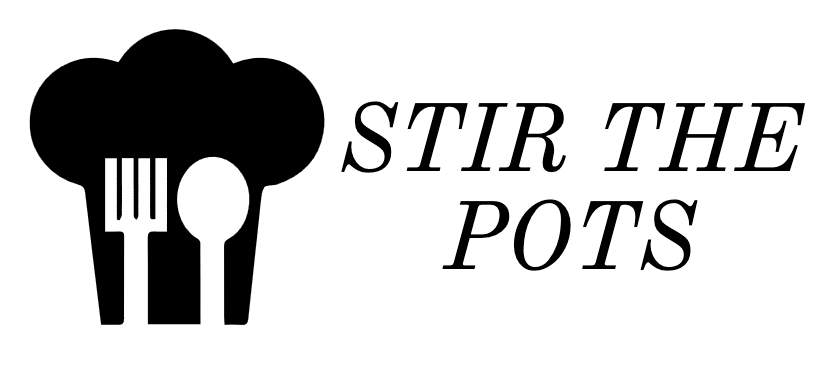
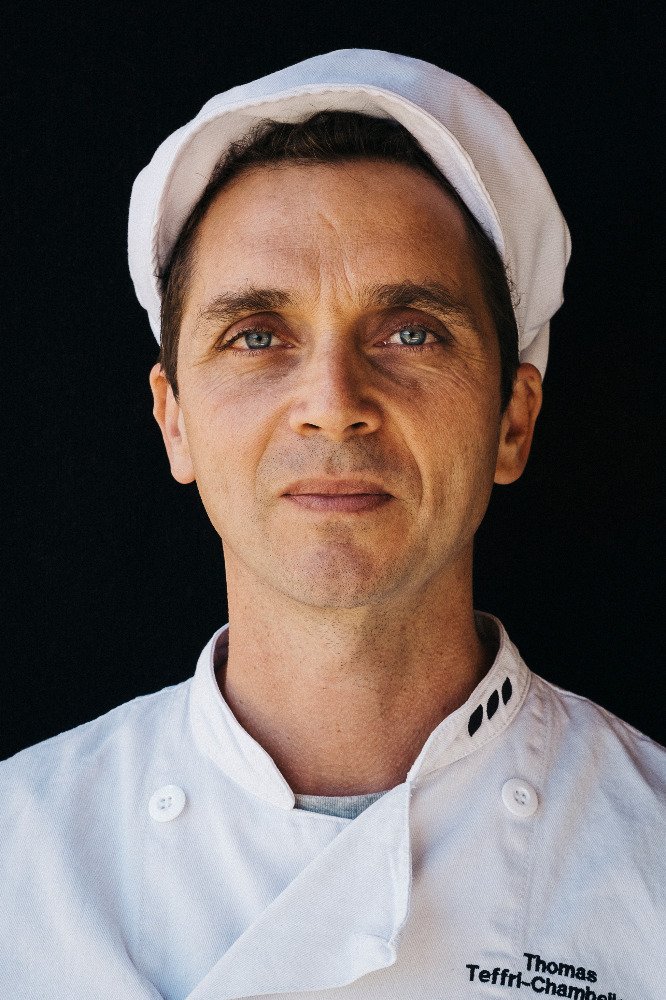
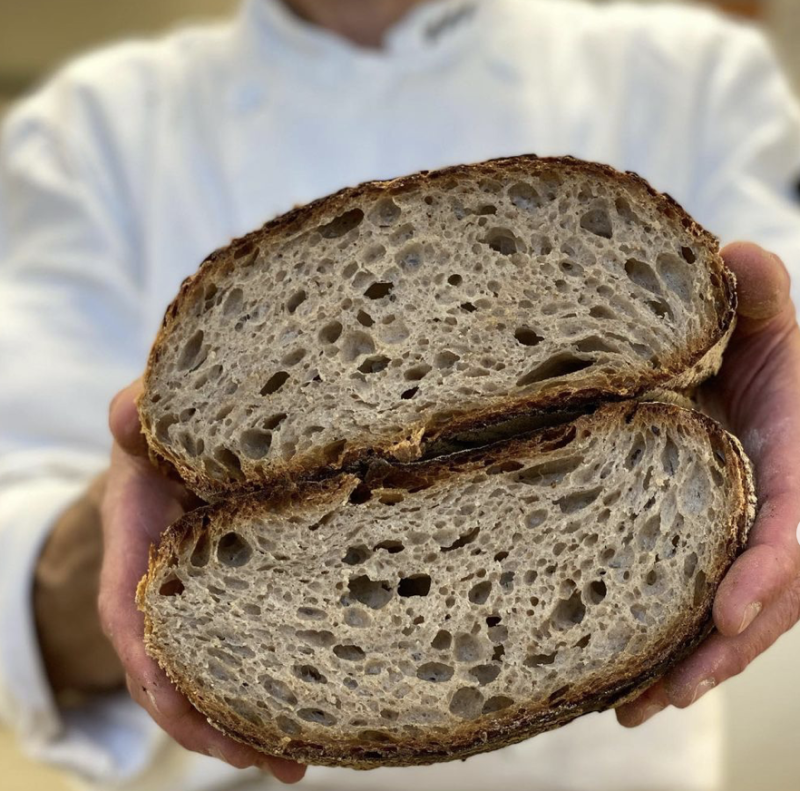
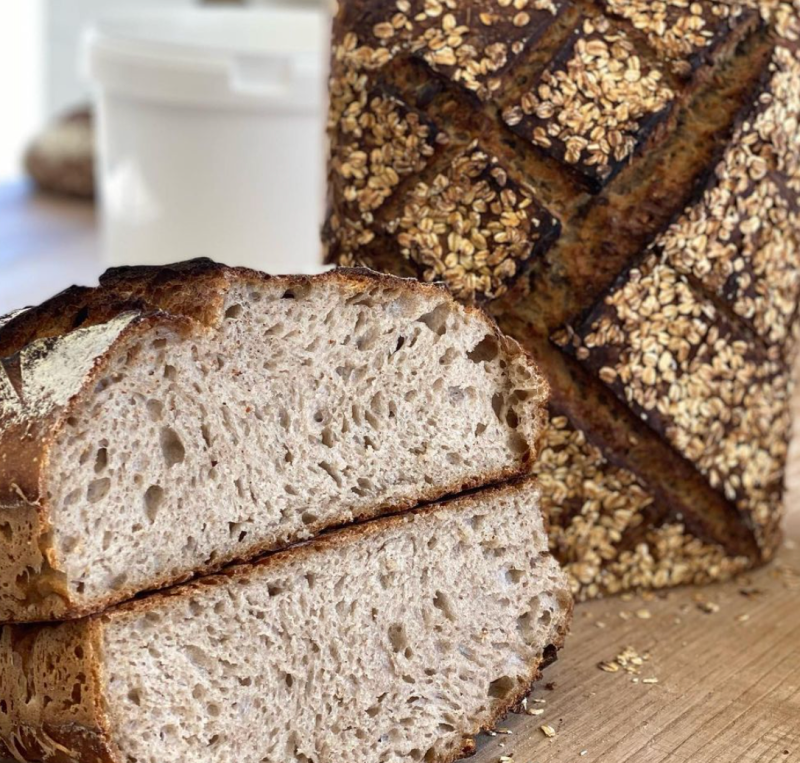
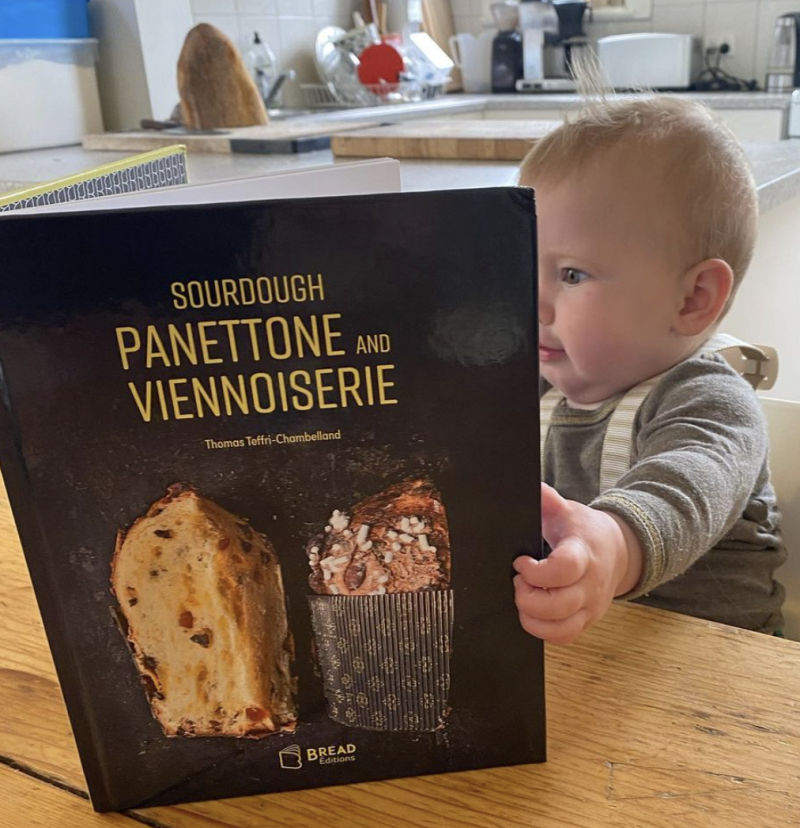
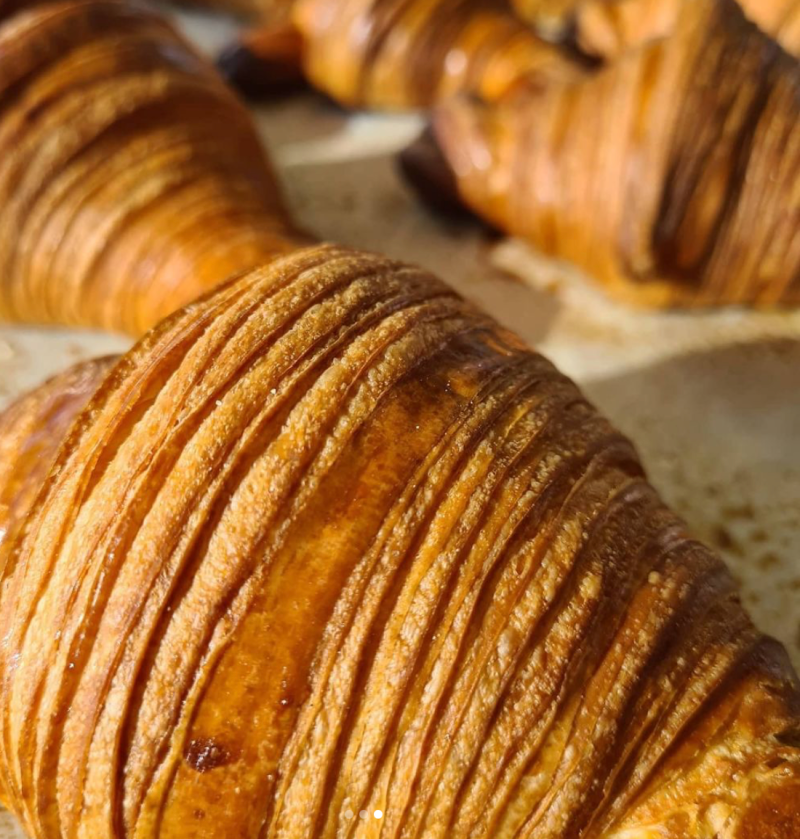
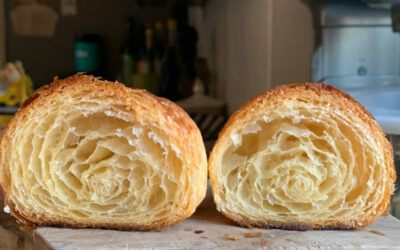
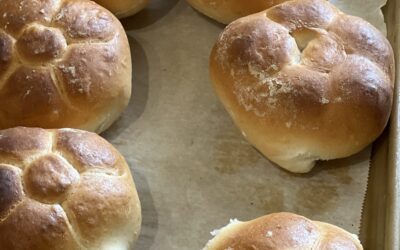

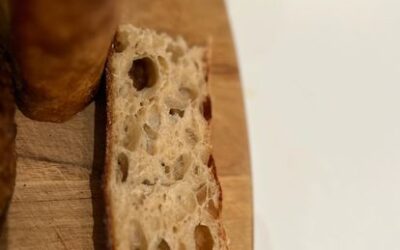
0 Comments